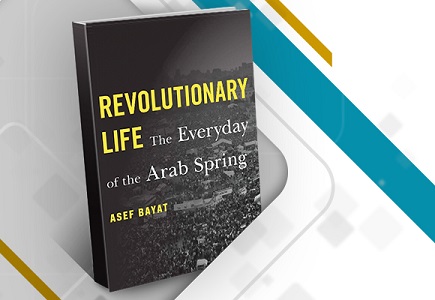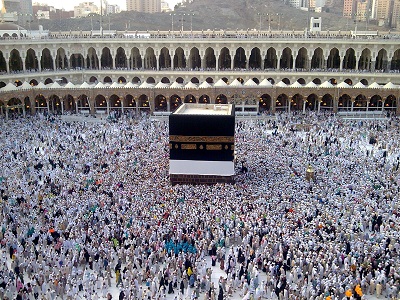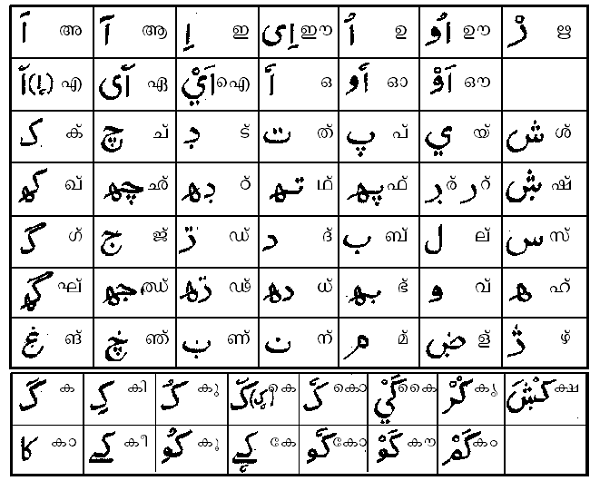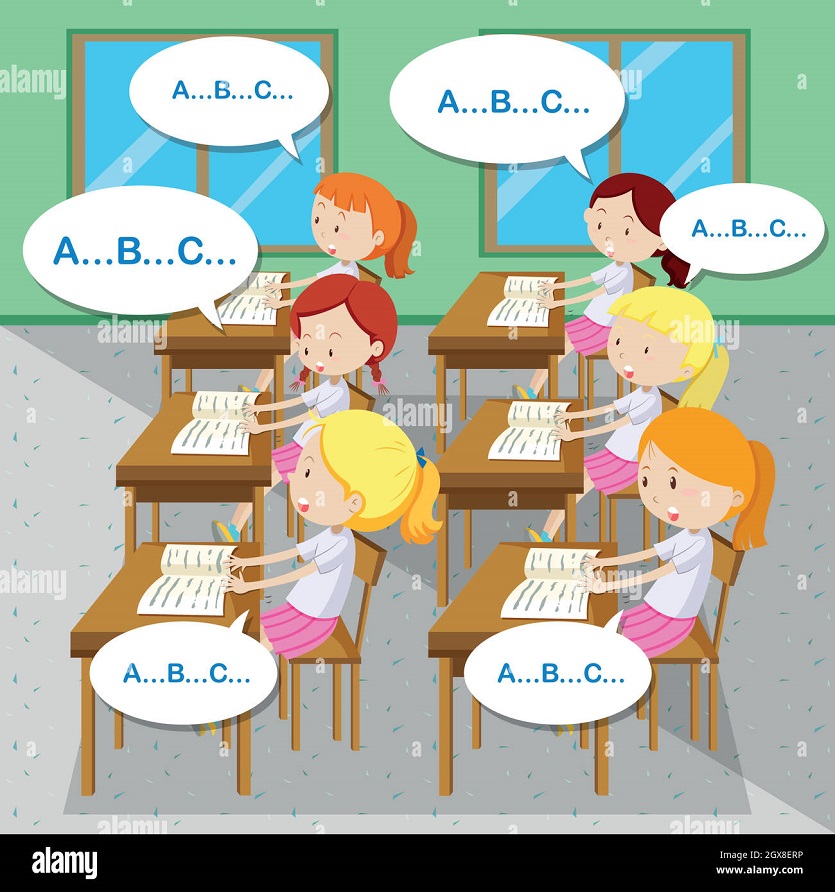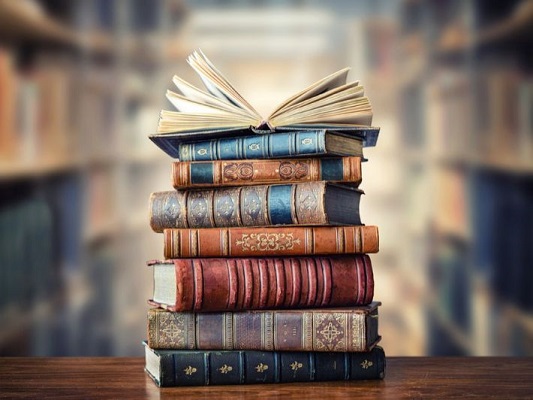Movements of Renovation in Modern Arabic Poetry
Mohammad Irshad Alam
PhD Scholar, EFL University Hyderabad
Volume No : 3
Issue No : 4
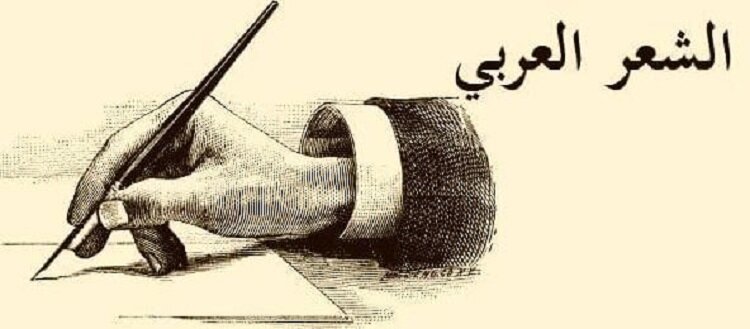
The interest of the Arabs in culture, literature and ancient heritage, and the spread of printing, journalism, bookshops, schools, libraries,colleges and universities were all a prelude to the rise of modern Arabic literature. In history, each period has features and characteristics that distinguish it from others, and likewise in modern Arabic literature that has modern literary schools of renovation e.g., classical school led by the first pioneer Mahmoud Sami al-Baroudi, Romantic school (led by Khalil Mutran), Symbolic( represented by Bisher Faris), Realisticand so on. The Classical school is the first literary movement that arose in Europe after the literary renaissance that swept Europe during the fifteenth century AD. Each literary movement has played a prominent role in the development of modern Arabic literature. With the arrival of literary movements after Arabs had come into contact with Western literature, the three criticizing schools namely “Schools of Diwan, Apollo & Mahjar” emerged, preceded by “Madrasatul Muhafizeen”(led by Baroudi) which had much more contributions to the development of modern Arabic poetry, these schools are the subject of study in this research paper.
The aim and objective of the research paper is to study the innovative schools in literature in general and poetry in particular. The research work will be carried out by the analytical descriptive method and the conversation will run into two sections in the following manner:
• The first one on introduction highlights the importance of modern Arabic poetry and states its historical adventure in modern Arabic literature.
• The second one on the literary movements and schools that rendered services of renovations to the modern Arabic poetry.
Historical Background:
When was the beginning of the renaissance in the Arab world?
Dr. Ahmed Haikal wrote in his book "Development of Modern Literature in Egypt" about the period of the renaissance in Egypt, he divided it in to two phases:
First phase: the period of awakening (فترة اليقظة); It was from the beginning of the French campaign on Egypt in 1798 till the year 1863
Second phase: the period of awareness (فترة الوعي); from 1863 until 1882 when Britain occupied Egypt
The awakening period: we can divide it into two periods:
• The period of the French campaign: The campaign had a lot of evil but still it was good from few points. The Egyptians saw a new government, a council for the people, and they saw the press and modern science. The French campaign was based on scientific aspects and modern inventions, so this was a factor of awakening in Egyptian society, until Muhammad Ali Pasha seized the power in 1805
• The period of Muhammad Ali Pasha: He was the second element of the awakening period, as he aspired to build a strong state and a steadfast army that would stand in the faces of the enemies. He established medical and general schools as well as hired teachers from Europe and sent delegates to France. The most famous delegate was the one led by Rifa'a Al-Tahtawi. The development of science and arts in Egypt during the reign of Muhammad Ali Pasha was remarkable, and after Muhammad Ali his sons- Abbas & Saeed- took power, but they did not only closethe schools under the pretext that these were Westernizing the ideas of the West,but also they exiled Rifa'a Al-Tahtawi to Sudan, as a result the stagnationoccurred on the progress of science and art in Egypt.
The Awareness period:It was the the reign of Ismail Khidevi, who was sent by Muhammad Ali to France. He admired the West a lot and wanted to make Egypt like Europe, so he reopened schools, sent academic delegations to Europe and established the Faculty of Law and the Faculty of Dar Al Uloom in 1871 under the leadership of Ali Mubarak. He combined the preservation of the old and not neglecting the new one, therefore Egypt became the pioneer of the Arab renaissance in the Arab world.But the journalism & press enlightenment in Egypt was led by the Lebanese refugees to Egypt.
After Ismail was dethroned and his son Taufique took over the reign of the government, Ahmed Arabi carried out the well-known revolution in which no blood was shed, but Britain intervened and exiled all those who interfered in the revolution and participated in it. It was beginning of the English occupation of Egypt in 1882.
Modern literary movements:
As a result of the intellectual frictions that appeared after Mahmoud Sami Al-Baroudi, there were four movements or schools of poetry:
1. Conservative School or School of Resurrection and Revival (مدرسة المحافظين أو مدرسة البعث والإحياء)
2. School of Diwan (مدرسة الديوان)
3. School of Apollo (مدرسة أبولو)
4. Movement of (Arabic) literature in diaspora (حركة أدب المهجر)
The last three movements fall within the bracket of Renovation schools.
The School of Conservatives:
They are the ones who came to the forefront after Baroudi and were able to strongly advance poetry from different aspects.With the beginning of this school of thought, the topics of modern Arabic poetry varied and included important issues in life, which are general issues concerning to Islam and the Arab nations, to personal issues that express the poet’s sentiments, feelings and internal social issues.They are credited with extricating Arabic poetry from the manipulation of words and taking care of verbal decoration. Rather, they have the credit for returning poetry to the rhetorical words.They approach the method of the poem in terms of: structure, stanzas, multiplicity of topics and themes. They adhered to poetic stanzas and syllables.
A number of poets joined thier hands with this school of poetry from different parts of Arab world. Some of them have much important roles. They are, on the top of them, as follows:
Hafez ibrahim, Ahmad Shawqi, Ahmad Muharram, Ismail Sabri, Ali al-jarim, Mahmoud Ghneim in Egypt, Maruf al-Rusafi, Jamil sidqui al-Zahawi, Al-Kazemi, Al-Najfi, Al-Shibi in Iraq, Ibrahim bin Hassan Al-Askoubi in Hijaz,and among them Muhammad bin Uthaymeen in Najd, Mahmoud Shawqi al-Ayoubi in Kuwait, Muhammad al-Khalifa al-Eid in Algeria, Muhammad al-Fasi in Maghreb, and from Lebanon Ibrahim Yazji and Amin Raihani, and from Syria Khalil Mardam Bik, Khair al-Din Al-Zarkali, Shafiq Jabri, and Omar Abu Risha, from Yemen Muhammad al-Zubayri, Zaid Ali al-Mushaki, and al-Bardouni, from Sudan al-Hashmi, and from Bahrain Ibrahim al-Awadhi. They are the well-known personalities of the renaissance, but this renaissance came to appear with its first pioneer Mahmoud Sami Al-Baroudi.
The Poetry and Criticism by School of Diwan:
The School of Diwan appeared in 1921 with the emergence of the book “Al-Diwan” in criticism, and it prevailed in the romantic trend in modern Arabic poetry. Apart from this, the nature poetry, sentimental poetry, contemplative poetry, lyrical poetry and human poetry started interacting with the poems of then poets.
Diwan is an innovative school in poetic colors and romantic in trends. Its threeimportant figures and founding members are: Abd al-Rahman Shukri, Abbas Mahmoud al-Aqqad and Ibrahim Abdel-Qadir al-Mazni. They played a pivotal role in the movement for poetic renaissance in modern Arabic poetry. Al-Aqqad and Al-Mazni have issued two parts of the book "Al-Diwan" and they expressed their new callin which Abbas Mahmoud al-Aqqad criticized Ahmad Shawqi and Mustafa Lutfi al-Manfalouti, whileIbrahim al-Mazni criticized Hafez Ibrahim and Abd al-Rahman Shukri.
This book caused a sensation in the literary and poetic atmosphere in the Arab world. Shukri separated from his colleagues and left them. A dispute erupted between Mazni and Shukri, and they were overly critical of each other. Mazni wrote,criticizing Abd al-Rahman Shukri, in a critical article entitled “Sanamul Aayub”. In the preface of the fifth part of the book “Al-Diwan”, Shukri criticized his colleague Ibrahim al-Mazni, as Ramzi Miftah wrote his well-known book "Letters of Criticism" criticizing Al-Aqqad and accusing him of stealing from Shukri. These three poets - Shukri, Mazni, and Aqqad - had been influenced by English civilization and culture; hence their view points were from English literature taking benefit from the “Golden Treasury”, while the culture of Khalil Mutran, Ahmad Shawqui and Hafez Ibrahim was tinged with French.
Khalil Mutran, Shukri, Al-Mazni and Al-Aqqad were the pioneers of the Romantic Movement. In the poetry of Mutran, we find his efforts to renew the structure of the poem.Romanticism (and even symbolism) was born at the hands of Khalil Mutran in poetry and al-Manfalouti in prose. Mutran supported the unity of the poem and the personality of the poet.
Mutran used to call for objective poetry, while Diwan group used to call for the personal or lyrical side of it that expresses the selfness of poet and his personality. They came up with a new theory called “Poetry of Imagination and thought”.
Their well-known slogan was the lines of Abd al-Rahman Shukriin this regard:
ألا يا طائر الفردوس إن الشعر وجدان (O bird of paradise, poetry is not but imagination and thought)
The three pioneers of Diwan School were a great example of Egyptian thought in the early twentieth century, as they represented the new romantic trend in poetry at that time.
They studied English romantic poets such as:William Wordsworth (1770 - 1850),
John Keats (1795 - 1821),Percy B Shelley (1792 - 1822) and others. Subsequently they were influenced by them in their romantic endowments. Diwan group represented a new literary thought they called for, wrote about it, and entered many critical battles for it. To the definition of poetry, Ibrahim al-Mazni added emotion and thought, while A.M.Aqqad turned to the poetry of ideas. The Poetry School of Apollo:
It is one of the innovative schools of modern Arabic poetry,Dr. Ahmed Zaki Abu Shady announced the birth of a new literary movement in 1932 that he called the "Apollo Group" and made Cairo a center for it. Abu Shady was appointed as its secretary, and Ahmed Shawqui was chosen as its president. Four days after the death of Shawqui, Khalil Mutran took over the charge of the movement.
A group of prominent writers, poets, critiques and youths stood with Ahmad Zaki Abu Shadi. The most important of them were: Ahmed Shawqi, Ahmed Muharram, Khalil Mutran, Ibrahim Naji, Ali Mahmoud Taha, Mustafa Abdul Latif Al-Sahrati, Mukhtar Al-Wakeel, Hassan Kamel Al-Serafi, and Kamel Al-Kilani, Ahmed Dhaif, Ahmed Al-Shayeb, Mahmoud Abu Al-Wafa and Muhammad Abdel-Moneim Khafaji.
The Apollo group published a magazine bearing its name, publishing its literature and spreading its ideas. Apollo was the first magazine devoted to poetry and its criticism in the Arab world. Membership of the group was open in Egypt and all Arab countries to poets in particular, and to writers and critics in general.
Soon this group and its magazine played a vital role in literature, criticism and poetry, and many writers, poets and critiques joined it, such as: Mustafa Abdel-Latif Al-Saharti, Saleh Jawdat, Abdel Aziz Ateeq, Mukhtar Al-Wakeel and others. The magazine opened its door to literature, criticism and poetry.
The Magazine started publishing for Shawqi, Matran, Muharram, Al-Aqqd (1964), Al-Rafei (1937), Ibrahim Naji (1953), Zaki Mubarak (1952), Ali Mahmoud Taha (1949), Muhammad Al-Asmar (1900-1956), Mahmoud Imad and Mustafa Al-Mahi, Othman Helmy, Fakhry Abu Al-Saud, Khalil Shaiboub, Sayed Qutb, Al-Awdh Al-Wakeel, Amer Buhairi, Bisher Faris, Taher Al-Tanahi, Sadiq Anbar, Farid Ain Shawka, Muhammad Abd Al-Mu'ti Al-Hamshari (1928) and others. Apollo Magazine continued to publishe until 1935, and then stopped.
Ahmed Zaki Abu Shadi draws the goals of the Apollo poetry group as follows:
• Development of Arabic poetry and direction of the efforts of poets
• Supporting artistic renaissance in the world of poetry
• Upgrading the standard of poets in terms of material, moral and social, and defending their dignity.
The purpose of poetry as per the view of Ahmad Zaki Abu Shadi is to perform the function of poetry with poetry for poetry, and his highest goal of poetry is the advancement of humanity through this beautiful art. Abu Shady believes that "artistic fluency" is an innate characteristic of every gifted artist, and this artistic fluency was called "artistic nature". As conclusion we can say the school of Apollo was a significant innovative movement that left a great impact on modern Arabic poetry.
School of Poets in Diaspora:
It is one of the important schools in the poetry movement of modern era. It has its own distinctive features, characteristics and its own doctrine in understanding poetry. Romanticism was prevalent in the poetry of the Diaspora school just like classical trend was prevailed in the poetry of conservatives.
The School of Diaspora poets has gained much more fame. What is meant by the School of Diaspora is the literature of those Arab poets migrating from the Levant countries to North and South America. This migration began after the mid of nineteenth century and continued during the first half of the twentieth century where they landed in Canada and the United States of America in north, and in Brazil, Argentina, Chile, Venezuela and Mexico in the countries of South America. Among the immigrants there were writers and poets who transmitted Arabic language and literature to those lands, and in those remote lands they created a literature in which they spoke of their estrangement and their longingness for their homelands, therefore the literature of these writers and poets were called Diaspora literature which was greatly influenced by romantic tendencies. They innovated the topics of poetry and set poetry free from Commitment to rhyme and number of stanzas in poetry while upholding heritage.Diaspora literature is also distinguished by its liberty in formulation, diversity in the topic and unity in the poem.These caused the development of modern poetry in Arabic literature. Mikhail Noaima and Gibran Khalil Gibran were the most prominent critiques of this school of innovation among the members of the “Pen League” (April 20, 1920), whereas amongst the key members of the “Andalusian Society” (1932) were Michel Maalouf and Rashid Salim al-Khoury.
Conclusion:
We can conclude the above mentioned lines with the words that the development of Arabic poetry is greatly associated with the literary movements in Arabic literature that left a high level of impact on it. To name the few, the schools of conservatives, Diwan and Apollo are the best examples of the renovation movements in Egypt and Arab world on the one hand, side by side with the Pen league and Adalusian Societyin diaspora literature on the other.
References:
• Dr. Ayub Tajuddin Nadvi. “She-rul Arab”. New Delhi, 2010
• Ahmad Haikal. “Tataw-worul Adab-al Hadith fi Misr”. Cairo, 1994
• Muhammad Abd al-Munim Khafaji. “Al-Adab al-Arbi Al-Hadith”. Cairo, 1986
• Muhammad Abd al-Munim Khafaji.” Dirasaat fil Adab al-Arbi wa Madarisuhu”. Beirut, 1992
• Isa Al- Nāʻuri. “Adab al-mahǧar”. Cairo, 1977.
• Muhammed Abdul-Ghan Hasani. “Ash-sher-ul Arabi fil-Mahjar”. Cairo,1995
• Muhammad Abd al-Munim Khafaji. "Qissatu-l Adabi-l Mahjari". Beirut,1986.
• George Saydah.” Adabuna wa Udabauna fi-l Mahajir Al-Amrikiya”. Beirut, 1964

